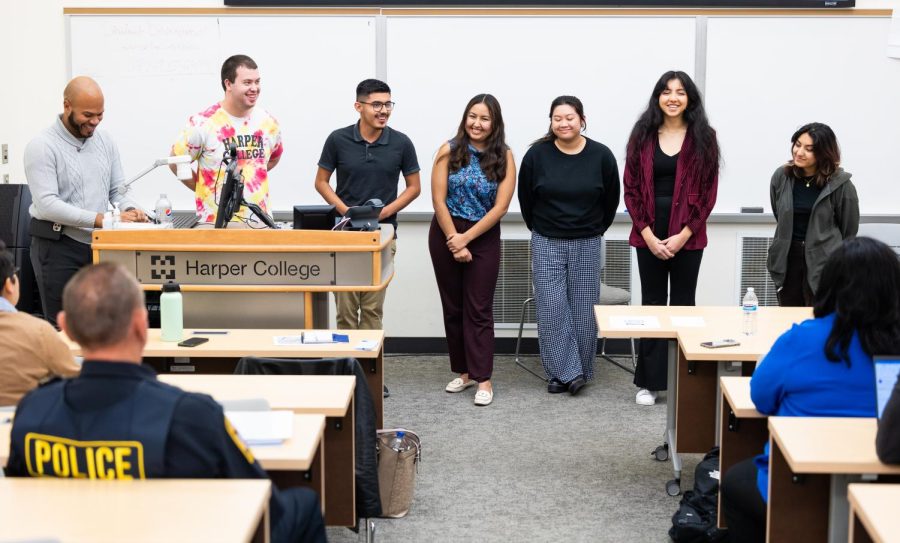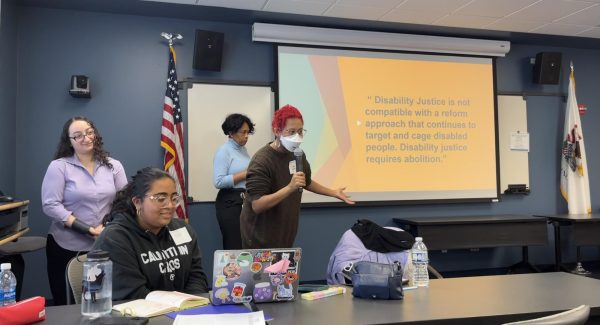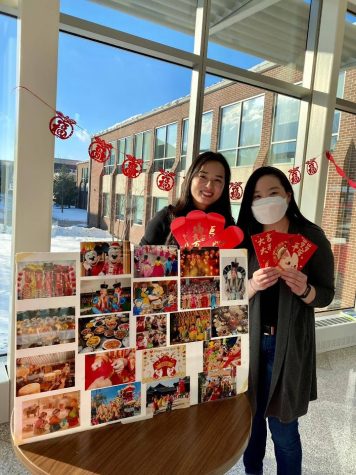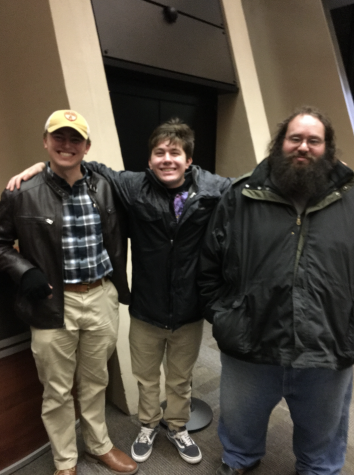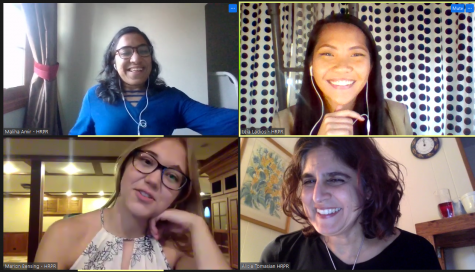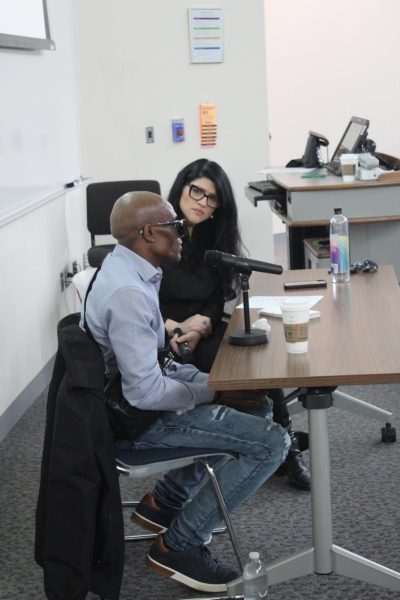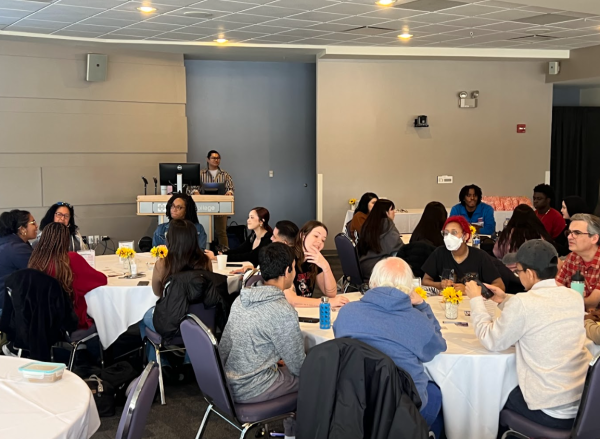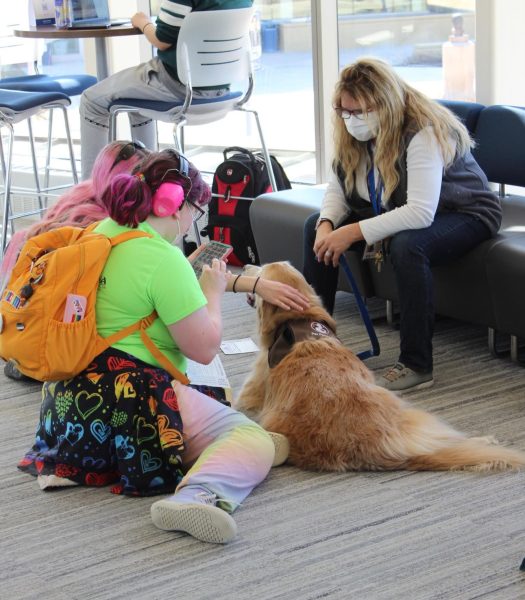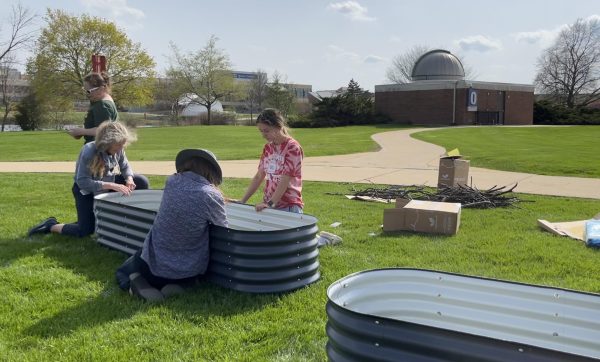Student Government hosts townhall to give students a voice
While professors and administrators represent student interests to the best of their ability, sometimes that job can be hard without a personal touch – it’s one thing to walk a mile in someone else’s shoes, and another to wear them every day until the soles run thin. This much needed perspective is where the Student Government Association (SGA) comes in.
But, according to SGA president Prince Bahadur, the word “government” can feel a bit like a dirty word, suggesting stuffy bureaucrats to many – or, to the less politically inclined, it might just be boredom.
However, Bahadur and his vice president Nathan Gonzalez agree that SGA isn’t quite what the name implies. More than anything, they want to be the voice of Harper’s student body.
“We are making sure that student voices are heard, but at the same time doing what’s necessary to be able to connect Harper,” Bahadur said.
SGA is structured like the U.S. government: it contains a president, vice president, treasurer and many senators that can all check the powers of each other. They meet and discuss issues formally with the board of trustees, during which senators voice student concerns brought to them as well as their own. Resolutions are reached and subsequently brought to the administration, who then decide how best to overcome shared obstacles.
As a representative body, it’s important to SGA that everyone involved gets a say, from the top brass down to their more junior members. Though senators are the lowest ranking members, their duty is to identify what Harper students are concerned about on campus.
“It gives me a sort of responsibility, a duty I have to make sure I’m doing right,” said Aisha Hernandez, an SGA senator.
The vice president organizes meetings and events and works closely with the president to communicate issues directly to faculty and administration. Gonzalez has unique abilities in his role; he’s a student aid at the new student center, so he has a direct link to students and staff.
The president’s role is multifaceted, and has required Bahadur to take on a managerial position. He does whatever is necessary to ensure efficiency and thorough communication.
“As the president, I don’t shy down from doing anything- that means the smallest tasks to the biggest,” Bahadur said.
While much of SGA’s duties require developing a working relationship with school administrators as well as the student body, Bahadur believes that the bond between members of SGA is just as important. He hopes to create a welcoming, cooperative environment at SGA in order to foster open communication between students, SGA, other student-run organizations, faculty and staff.
Of course, these roles mean nothing unless the student body is willing to voice their concerns to SGA. Following the isolation caused by the COVID-19 pandemic, student involvement on campus has decreased dramatically.
“[With so many online classes, many students] have no incentive to even come to campus. Just from being on campus, you might come to class or go, ‘Oh, I’m hungry,’ and get something to eat, and along the way, you’ll happen to find something to do, you’ll see [activities and become curious about them],” Bahadur said. “That’s just how [clubs] build up. But now, there’s no incentive to show up.”
Rather than communities forming how they used to, Bahadur feels that there’s an aspect of “marketing” to getting people successfully involved that wasn’t so essential before. And, with a general lack of manpower, getting the word out is even harder than it was before, despite being arguably even more important.
Hoping to alleviate this issue, SGA held a town hall on November 1st, intended to spark conversations about how SGA and administration plan to bring the “community” back to community college. SGA has held similar town halls in the past, but according to Bahadur, this is the first during his tenure that was organized exclusively by the executive board of SGA itself without being initiated by Student Engagement.
Harper president Dr. Avis Proctor, provost Dr. MaryAnn Janosik, Dean of Students Mary Kay Harton, senior manager of Harper’s Prospect Heights career center Jennifer Brennan and campus chief of police John Lawson all outlined plans to make Harper safer, friendlier and more welcoming. They then answered questions from students, being open about how and why they would pursue any plan of action.
The low turnout of students to the event was considered a disappointment by SGA leadership. But Bahadur believes that the breadth of questions from the students that did attend shows that they are at least getting the attention of the right students.
Senator Hernandez, President Bahadur and Vice President Gonzalez feel empowered in their roles, supporting Harper and its student body.
“Even just having the say in the meetings, giving my input – I think that’s big,” Hernandez said.
“We’re going through so much as a student, and sometimes you feel like ‘Oh, this is just my problem,’ but when you get there and talk about it, there’s a lot of people who are going through the same thing,” Bahadur said. “Whatever issues you’re facing, I want them to come to SGA. We’ll fight them together, we’ll face them together… that’s what I want SGA to be.”


